Congratulations, doc.
Preston
____________________________________
Doctor Wins $189M Powerball Prize
AOL
TALLAHASSEE, Fla. (Oct. 16) - An Orlando dermatologist is Florida's first Powerball winner.
Dr. William Steele chose to take a $101 million lump-sum payment Thursday rather than $189 million spread over 20 years.
That's the largest jackpot of any kind awarded in Florida history.
The Orlando Sentinel reported that Steele kept the winning ticket in his wallet for days without checking it.
His wife, Frankie Summers-Steele, an inspirational writer and speaker, accompanied him as he turned in his ticket and collected his prize.
Steele, who lives in a gated community nicknamed "Millionaire Road" for its fancy homes, recalled breaking the news to his wife.
"Honey, do you love me?" the doctor asked her.
"I always loved you," she replied.
"I love you, too. Oh, by the way ..."
The doctor said he plans to continue his practice "if the public will let me" and give much of the money to charity, the Sentinel said.
Florida became the 30th state to offer the high-jackpot game in January. It abstained for years, fearing Powerball would detract from sales of the state's own lottery games.
Steele was the sole jackpot winner in the Oct. 3 drawing.
The winning numbers were 12, 24, 48, 50, 57 and the Powerball was 22. The Power Play was 3.
2009 AOL LLC. All Rights Reserved. Copyright 2009 The Associated Press. The information contained in the AP news report may not be published, broadcast, rewritten or otherwise distributed without the prior written authority of The Associated Press. Active hyperlinks have been inserted by AOL.
2009-10-15 13:44:53
A blog for lovers of the printed word (novels, short stories, poems--the Ing so to speak), popular film, politics, and casinos (the Bling).
Friday, October 16, 2009
Thursday, October 15, 2009
Justice of the Peace Refuses to Issue Marriage License to Interracial Couple
I found this on AOL.
No Comment.
Thanks,
Preston
______________________________________________
No Marriage License for Interracial Couple
AP
HAMMOND, La. (Oct. 15) - A Louisiana justice of the peace said he refused to issue a marriage license to an interracial couple out of concern for any children the couple might have.
Keith Bardwell, justice of the peace in Tangipahoa Parish, says it is his experience that most interracial marriages do not last long.
Neither Bardwell nor the couple immediately returned phone calls from The Associated Press. But Bardwell told the Daily Star of Hammond that he was not a racist.
"I do ceremonies for black couples right here in my house," Bardwell said. "My main concern is for the children."
Bardwell said he has discussed the topic with blacks and whites, along with witnessing some interracial marriages. He came to the conclusion that most of black society does not readily accept offspring of such relationships, and neither does white society, he said.
"I don't do interracial marriages because I don't want to put children in a situation they didn't bring on themselves," Bardwell said. "In my heart, I feel the children will later suffer."
If he does an interracial marriage for one couple, he must do the same for all, he said.
"I try to treat everyone equally," he said.
Thirty-year-old Beth Humphrey and 32-year-old Terence McKay, both of Hammond, say they will consult the U.S. Justice Department about filing a discrimination complaint.
Humphrey told the newspaper she called Bardwell on Oct. 6 to inquire about getting a marriage license signed. She says Bardwell's wife told her that Bardwell will not sign marriage licenses for interracial couples.
"It is really astonishing and disappointing to see this come up in 2009," said American Civil Liberties Union of Louisiana attorney Katie Schwartzman. "The Supreme Court ruled as far back as 1963 that the government cannot tell people who they can and cannot marry."
The ACLU was preparing a letter for the Louisiana Supreme Court, which oversees the state justices of the peace, asking them to investigate Bardwell and see if they can remove him from office, Schwartzman said.
"He knew he was breaking the law, but continued to do it," Schwartzman said.
According to the clerk of court's office, application for a marriage license must be made three days before the ceremony because there is a 72-hour waiting period.
The applicants are asked if they have previously been married. If so, they must show how the marriage ended, such as divorce.
Other than that, all they need is a birth certificate and Social Security card. The license fee is $35, and the license must be signed by a Louisiana minister, justice of the peace or judge. The original is returned to the clerk's office.
Copyright 2009 The Associated Press. The information contained in the AP news report may not be published, broadcast, rewritten or otherwise distributed without the prior written authority of The Associated Press. Active hyperlinks have been inserted by AOL.
2009-10-15 16:11:52
No Comment.
Thanks,
Preston
______________________________________________
No Marriage License for Interracial Couple
AP
HAMMOND, La. (Oct. 15) - A Louisiana justice of the peace said he refused to issue a marriage license to an interracial couple out of concern for any children the couple might have.
Keith Bardwell, justice of the peace in Tangipahoa Parish, says it is his experience that most interracial marriages do not last long.
Neither Bardwell nor the couple immediately returned phone calls from The Associated Press. But Bardwell told the Daily Star of Hammond that he was not a racist.
"I do ceremonies for black couples right here in my house," Bardwell said. "My main concern is for the children."
Bardwell said he has discussed the topic with blacks and whites, along with witnessing some interracial marriages. He came to the conclusion that most of black society does not readily accept offspring of such relationships, and neither does white society, he said.
"I don't do interracial marriages because I don't want to put children in a situation they didn't bring on themselves," Bardwell said. "In my heart, I feel the children will later suffer."
If he does an interracial marriage for one couple, he must do the same for all, he said.
"I try to treat everyone equally," he said.
Thirty-year-old Beth Humphrey and 32-year-old Terence McKay, both of Hammond, say they will consult the U.S. Justice Department about filing a discrimination complaint.
Humphrey told the newspaper she called Bardwell on Oct. 6 to inquire about getting a marriage license signed. She says Bardwell's wife told her that Bardwell will not sign marriage licenses for interracial couples.
"It is really astonishing and disappointing to see this come up in 2009," said American Civil Liberties Union of Louisiana attorney Katie Schwartzman. "The Supreme Court ruled as far back as 1963 that the government cannot tell people who they can and cannot marry."
The ACLU was preparing a letter for the Louisiana Supreme Court, which oversees the state justices of the peace, asking them to investigate Bardwell and see if they can remove him from office, Schwartzman said.
"He knew he was breaking the law, but continued to do it," Schwartzman said.
According to the clerk of court's office, application for a marriage license must be made three days before the ceremony because there is a 72-hour waiting period.
The applicants are asked if they have previously been married. If so, they must show how the marriage ended, such as divorce.
Other than that, all they need is a birth certificate and Social Security card. The license fee is $35, and the license must be signed by a Louisiana minister, justice of the peace or judge. The original is returned to the clerk's office.
Copyright 2009 The Associated Press. The information contained in the AP news report may not be published, broadcast, rewritten or otherwise distributed without the prior written authority of The Associated Press. Active hyperlinks have been inserted by AOL.
2009-10-15 16:11:52
Wednesday, October 14, 2009
Paranormal Activity
This movie sounds like a winner.
My students who have seen it are saying . . .
"The scariest movie I have ever seen."
"I hated it! It scared me too much. I can't stop thinking about it."
"This one will scare you."
"It's worth the money, if you can stay through the whole thing."
Okay, PARANORMAL ACTIVITY--I will see it.
The last movie to give me a good scare--though only a brief one--was THE SIXTH SENSE. It was during that scene when the vomit-girl show up suddenly in the red tent. That gave me a nice jolt.
Thanks,
Preston
My students who have seen it are saying . . .
"The scariest movie I have ever seen."
"I hated it! It scared me too much. I can't stop thinking about it."
"This one will scare you."
"It's worth the money, if you can stay through the whole thing."
Okay, PARANORMAL ACTIVITY--I will see it.
The last movie to give me a good scare--though only a brief one--was THE SIXTH SENSE. It was during that scene when the vomit-girl show up suddenly in the red tent. That gave me a nice jolt.
Thanks,
Preston
Good Books Don't Have to Be Hard
This article from the Wall Street Journal put some goosebumps on my spine.
But it makes sense to me.
Thanks,
Preston
_____________________________________________
Good Books Don't Have to Be Hard
A novelist on the pleasure of reading stories that don't bore; rising up from the supermarket racks
By LEV GROSSMAN
A good story is a dirty secret that we all share. It's what makes guilty pleasures so pleasurable, but it's also what makes them so guilty. A juicy tale reeks of crass commercialism and cheap thrills. We crave such entertainments, but we despise them. Plot makes perverts of us all.
It's not easy to put your finger on what exactly is so disgraceful about our attachment to storyline. Sure, it's something to do with high and low and genres and the canon and such. But what exactly? Part of the problem is that to find the reason you have to dig down a ways, down into the murky history of the novel. There was once a reason for turning away from plot, but that rationale has outlived its usefulness. If there's a key to what the 21st-century novel is going to look like, this is it: the ongoing exoneration and rehabilitation of plot.
Where did this conspiracy come from in the first place—the plot against plot? I blame the Modernists. Who were, I grant you, the single greatest crop of writers the novel has ever seen. In the 1920s alone they gave us "The Age of Innocence," "Ulysses," "A Passage to India," "Mrs. Dalloway," "To the Lighthouse," "Lady Chatterley's Lover," "The Sun Also Rises," "A Farewell to Arms" and "The Sound and the Fury." Not to mention most of "In Search of Lost Time" and all of Kafka's novels. Pity the poor Pulitzer judge for 1926, who had to choose between "The Professor's House," "The Great Gatsby," "Arrowsmith" and "An American Tragedy." (It went to "Arrowsmith." Sinclair Lewis prissily declined the prize.) The 20th century had a full century's worth of masterpieces before it was half over.
But let's look back for a second at where the Modernists came from, and what exactly they did with the novel. They drew a tough hand, historically speaking. All the bad news of the modern era had just arrived more or less at the same time: mass media, advertising, psychoanalysis, mechanized warfare. The rise of electric light and internal combustion had turned their world into a noisy, reeking travesty of the gas-lit, horse-drawn world they grew up in. The orderly, complacent, optimistic Victorian novel had nothing to say to them. Worse than nothing: it felt like a lie. The novel was a mirror the Modernists needed to break, the better to reflect their broken world. So they did.
One of the things they broke was plot. To the Modernists, stories were a distortion of real life. In real life stories don't tie up neatly. Events don't line up in a tidy sequence and mean the same things to everybody they happen to. Ask a veteran of the Somme whether his tour of duty resembled the "Boy's Own" war stories he grew up on. The Modernists broke the clear straight lines of causality and perception and chronological sequence, to make them look more like life as it's actually lived. They took in "The Mill on the Floss" and spat out "The Sound and the Fury."
This brought with it another, related development: difficulty. It's hard to imagine it now, but there was a time when literary novels were not, generally speaking, all that hard to read. Say what you like about the works of Dickens and Thackeray, you pretty much always know who's talking, and when, and what they're talking about. The Modernists introduced us to the idea that reading could be work, and not common labor but the work of an intellectual elite, a highly trained coterie of professional aesthetic interpreters. The motto of Ezra Pound's "Little Review," which published the first chapters of Joyce's "Ulysses," was "Making no compromise with the public taste." Imagine what it felt like the first time somebody opened up "The Waste Land" and saw that it came with footnotes. Amateur hour was over.
But we don't live in the Modernists' world anymore. We have different problems. We've had plenty of bad news of our own. Some of which has to do with the book business itself—sales of adult trade books declined 2.3% last year, compared with 2007. Should we still be writing difficult novels? Isn't it time we made our peace with plot?
After all, the discipline of the conventional literary novel is a pretty harsh one. To read one is to enter into a kind of depressed economy, where pleasure must be bought with large quantities of work and patience. The Modernists felt little obligation to entertain their readers. That was just the price you paid for your Joycean epiphany. Conversely they have trained us, Pavlovianly, to associate a crisp, dynamic, exciting plot with supermarket fiction, and cheap thrills, and embarrassment. Plot was the coward's way out, for people who can't deal with the real world. If you're having too much fun, you're doing it wrong.
There was a time when difficult literature was exciting. T.S. Eliot once famously read to a whole football stadium full of fans.
And it's still exciting—when Eliot does it.
But in contemporary writers it has just become a drag. Which is probably why millions of adults are cheating on the literary novel with the young-adult novel, where the unblushing embrace of storytelling is allowed, even encouraged. Sales of hardcover young-adult books are up 30.7% so far this year, through June, according to the Association of American Publishers, while adult hardcovers are down 17.8%. Nam Le's "The Boat," one of the best-reviewed books of fiction of 2008, has sold 16,000 copies in hardcover and trade paperback, according to Nielsen Bookscan (which admittedly doesn't include all book retailers). In the first quarter of 2009 alone, the author of the "Twilight" series, Stephenie Meyer, sold eight million books.
What are those readers looking for? You'll find critics who say they have bad taste, or that they're lazy and can't hack it in the big leagues. But that's not the case. They need something they're not getting elsewhere. Let's be honest: Why do so many adults read Suzanne Collins's young-adult novel "The Hunger Games" instead of contemporary literary fiction? Because "The Hunger Games" doesn't bore them.
All of this is changing. The revolution is under way. The novel is getting entertaining again. Writers like Michael Chabon, Jonathan Lethem, Donna Tartt, Kelly Link, Audrey Niffenegger, Richard Price, Kate Atkinson, Neil Gaiman, and Susanna Clarke, to name just a few, are busily grafting the sophisticated, intensely aware literary language of Modernism onto the sturdy narrative roots of genre fiction: fantasy, science fiction, detective fiction, romance. They're forging connections between literary spheres that have been hermetically sealed off from one another for a century. Look at Cormac McCarthy, who for years appeared to be the oldest living Modernist in captivity, but who has inaugurated his late period with a serial-killer novel followed by a work of apocalyptic science fiction. Look at Thomas Pynchon—in "Inherent Vice" he has swapped his usual cumbersome verbal calisthenics for the more maneuverable chassis of a hard-boiled detective novel.
This is the future of fiction. The novel is finally waking up from its 100-year carbonite nap. Old hierarchies of taste are collapsing. Genres are hybridizing. The balance of power is swinging from the writer back to the reader, and compromises with the public taste are being struck all over the place. Lyricism is on the wane, and suspense and humor and pacing are shedding their stigmas and taking their place as the core literary technologies of the 21st century.
From a hieratic, hermetic art object the novel is blooming into something more casual and open: a literature of pleasure. The critics will have to catch up. This new breed of novel resists interpretation, but not the way the Modernists did. These books require a different set of tools, and a basic belief that plot and literary intelligence aren't mutually exclusive.
In fact the true postmodern novel is here, hiding in plain sight. We just haven't noticed it because we're looking in the wrong aisle. We were trained—by the Modernists, who else—to expect a literary revolution to be a revolution of the avant-garde: typographically altered, grammatically shattered, rhetorically obscure. Difficult, in a word. This is different. It's a revolution from below, up from the supermarket racks.
—Lev Grossman is the book critic at Time magazine and the author of "The Magicians," a novel.
Copyright 2009 Dow Jones & Company, Inc. All Rights Reserved
This copy is for your personal, non-commercial use only. Distribution and use of this material are governed by our Subscriber Agreement and by copyright law. For non-personal use or to order multiple copies, please contact Dow Jones Reprints at 1-800-843-0008 or visit
www.djreprints.com
But it makes sense to me.
Thanks,
Preston
_____________________________________________
Good Books Don't Have to Be Hard
A novelist on the pleasure of reading stories that don't bore; rising up from the supermarket racks
By LEV GROSSMAN
A good story is a dirty secret that we all share. It's what makes guilty pleasures so pleasurable, but it's also what makes them so guilty. A juicy tale reeks of crass commercialism and cheap thrills. We crave such entertainments, but we despise them. Plot makes perverts of us all.
It's not easy to put your finger on what exactly is so disgraceful about our attachment to storyline. Sure, it's something to do with high and low and genres and the canon and such. But what exactly? Part of the problem is that to find the reason you have to dig down a ways, down into the murky history of the novel. There was once a reason for turning away from plot, but that rationale has outlived its usefulness. If there's a key to what the 21st-century novel is going to look like, this is it: the ongoing exoneration and rehabilitation of plot.
Where did this conspiracy come from in the first place—the plot against plot? I blame the Modernists. Who were, I grant you, the single greatest crop of writers the novel has ever seen. In the 1920s alone they gave us "The Age of Innocence," "Ulysses," "A Passage to India," "Mrs. Dalloway," "To the Lighthouse," "Lady Chatterley's Lover," "The Sun Also Rises," "A Farewell to Arms" and "The Sound and the Fury." Not to mention most of "In Search of Lost Time" and all of Kafka's novels. Pity the poor Pulitzer judge for 1926, who had to choose between "The Professor's House," "The Great Gatsby," "Arrowsmith" and "An American Tragedy." (It went to "Arrowsmith." Sinclair Lewis prissily declined the prize.) The 20th century had a full century's worth of masterpieces before it was half over.
But let's look back for a second at where the Modernists came from, and what exactly they did with the novel. They drew a tough hand, historically speaking. All the bad news of the modern era had just arrived more or less at the same time: mass media, advertising, psychoanalysis, mechanized warfare. The rise of electric light and internal combustion had turned their world into a noisy, reeking travesty of the gas-lit, horse-drawn world they grew up in. The orderly, complacent, optimistic Victorian novel had nothing to say to them. Worse than nothing: it felt like a lie. The novel was a mirror the Modernists needed to break, the better to reflect their broken world. So they did.
One of the things they broke was plot. To the Modernists, stories were a distortion of real life. In real life stories don't tie up neatly. Events don't line up in a tidy sequence and mean the same things to everybody they happen to. Ask a veteran of the Somme whether his tour of duty resembled the "Boy's Own" war stories he grew up on. The Modernists broke the clear straight lines of causality and perception and chronological sequence, to make them look more like life as it's actually lived. They took in "The Mill on the Floss" and spat out "The Sound and the Fury."
This brought with it another, related development: difficulty. It's hard to imagine it now, but there was a time when literary novels were not, generally speaking, all that hard to read. Say what you like about the works of Dickens and Thackeray, you pretty much always know who's talking, and when, and what they're talking about. The Modernists introduced us to the idea that reading could be work, and not common labor but the work of an intellectual elite, a highly trained coterie of professional aesthetic interpreters. The motto of Ezra Pound's "Little Review," which published the first chapters of Joyce's "Ulysses," was "Making no compromise with the public taste." Imagine what it felt like the first time somebody opened up "The Waste Land" and saw that it came with footnotes. Amateur hour was over.
But we don't live in the Modernists' world anymore. We have different problems. We've had plenty of bad news of our own. Some of which has to do with the book business itself—sales of adult trade books declined 2.3% last year, compared with 2007. Should we still be writing difficult novels? Isn't it time we made our peace with plot?
After all, the discipline of the conventional literary novel is a pretty harsh one. To read one is to enter into a kind of depressed economy, where pleasure must be bought with large quantities of work and patience. The Modernists felt little obligation to entertain their readers. That was just the price you paid for your Joycean epiphany. Conversely they have trained us, Pavlovianly, to associate a crisp, dynamic, exciting plot with supermarket fiction, and cheap thrills, and embarrassment. Plot was the coward's way out, for people who can't deal with the real world. If you're having too much fun, you're doing it wrong.
There was a time when difficult literature was exciting. T.S. Eliot once famously read to a whole football stadium full of fans.
And it's still exciting—when Eliot does it.
But in contemporary writers it has just become a drag. Which is probably why millions of adults are cheating on the literary novel with the young-adult novel, where the unblushing embrace of storytelling is allowed, even encouraged. Sales of hardcover young-adult books are up 30.7% so far this year, through June, according to the Association of American Publishers, while adult hardcovers are down 17.8%. Nam Le's "The Boat," one of the best-reviewed books of fiction of 2008, has sold 16,000 copies in hardcover and trade paperback, according to Nielsen Bookscan (which admittedly doesn't include all book retailers). In the first quarter of 2009 alone, the author of the "Twilight" series, Stephenie Meyer, sold eight million books.
What are those readers looking for? You'll find critics who say they have bad taste, or that they're lazy and can't hack it in the big leagues. But that's not the case. They need something they're not getting elsewhere. Let's be honest: Why do so many adults read Suzanne Collins's young-adult novel "The Hunger Games" instead of contemporary literary fiction? Because "The Hunger Games" doesn't bore them.
All of this is changing. The revolution is under way. The novel is getting entertaining again. Writers like Michael Chabon, Jonathan Lethem, Donna Tartt, Kelly Link, Audrey Niffenegger, Richard Price, Kate Atkinson, Neil Gaiman, and Susanna Clarke, to name just a few, are busily grafting the sophisticated, intensely aware literary language of Modernism onto the sturdy narrative roots of genre fiction: fantasy, science fiction, detective fiction, romance. They're forging connections between literary spheres that have been hermetically sealed off from one another for a century. Look at Cormac McCarthy, who for years appeared to be the oldest living Modernist in captivity, but who has inaugurated his late period with a serial-killer novel followed by a work of apocalyptic science fiction. Look at Thomas Pynchon—in "Inherent Vice" he has swapped his usual cumbersome verbal calisthenics for the more maneuverable chassis of a hard-boiled detective novel.
This is the future of fiction. The novel is finally waking up from its 100-year carbonite nap. Old hierarchies of taste are collapsing. Genres are hybridizing. The balance of power is swinging from the writer back to the reader, and compromises with the public taste are being struck all over the place. Lyricism is on the wane, and suspense and humor and pacing are shedding their stigmas and taking their place as the core literary technologies of the 21st century.
From a hieratic, hermetic art object the novel is blooming into something more casual and open: a literature of pleasure. The critics will have to catch up. This new breed of novel resists interpretation, but not the way the Modernists did. These books require a different set of tools, and a basic belief that plot and literary intelligence aren't mutually exclusive.
In fact the true postmodern novel is here, hiding in plain sight. We just haven't noticed it because we're looking in the wrong aisle. We were trained—by the Modernists, who else—to expect a literary revolution to be a revolution of the avant-garde: typographically altered, grammatically shattered, rhetorically obscure. Difficult, in a word. This is different. It's a revolution from below, up from the supermarket racks.
—Lev Grossman is the book critic at Time magazine and the author of "The Magicians," a novel.
Copyright 2009 Dow Jones & Company, Inc. All Rights Reserved
This copy is for your personal, non-commercial use only. Distribution and use of this material are governed by our Subscriber Agreement and by copyright law. For non-personal use or to order multiple copies, please contact Dow Jones Reprints at 1-800-843-0008 or visit
www.djreprints.com
Subscribe to:
Posts (Atom)
Lipshitz 6

Reading T Cooper for Christmas
Click Here to Purchase Lipshitz 6
Punk Blood

Jay Marvin
Click Here to Purchase Punk Blood
Breath, Eyes, Memory

Anonymous Rex
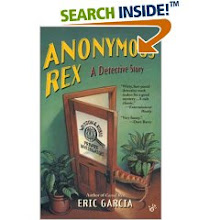
Reading Eric Garcia for Christmas
Click Here to Purchase Anonymous Rex
Vinegar Hill
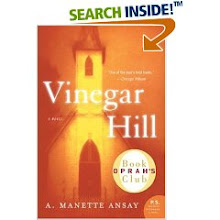
Reading A. Manette Ansay for Christmas
Click Here to Purchase Vinegar Hill
Nicotine Dreams

Reading Katie Cunningham for Christmas
Click Here to Purchase Nicotine Dreams
Junot Diaz
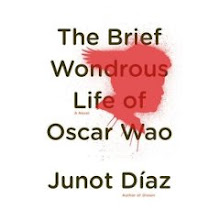
Pulitzer Prize Winner!!!
Click Here to Purchase The Brief Wondrous Life of Oscar Wao
Edwige Danticat

New Year's Reading
Click Here to Purchase Brother I"m Dying
Greed
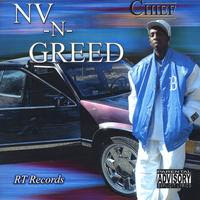
This Brother Is Scary Good
Sweet Music
One More Chance
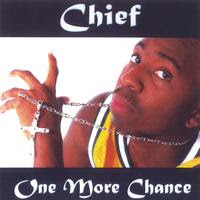
The genius Is At It Again/The Rapper CHIEF aka Sherwin Allen
Sandrine's Letter
Check out Sandrine's Letter To Tomorrow. You will like it, I insist.
Sandrine's Link
Cool Sites
- Akashic Books
- All or Nothing (My Other Blog)
- Asili The Journal
- Best Gamblling News Site
- Black Star Review
- Book Remarks
- Booktour.com
- Carolina Wren Press
- Click Here for Some Pretty Good Writing Contests
- Dedra Johnson
- Enrico Theoc
- Felicia Luna Lemus
- Florida Book Review
- Foreword Magazine
- Gambling Is Linked to Suicide
- Gambling Is Not Linked to Suicide
- Gaming Law Review
- Gene Durnell's The Thinking Journalist
- Gene Durnell's The Thinking Journalist
- Geoffrey Philp's Blog
- Get Chief's CDs on CD Baby
- Getting Past Gambling
- Gonzalo Barr's Blog
- Good Reads
- Hallema's Homepage
- Help With Gambling Addiction
- Jeremy Shipp's Website
- John Dufresne's Blog
- Leonard Nash Homepage
- Links to Seminole Casinos in Florida
- Martha Frankel's Homepage
- Michael A. Gonzales
- Miss Snark/ An Agent Gives Great Publishing Advice
- More Addiction Help
- No Gambling.com
- Pat MacEnulty
- ScrewIowa.com
- St. Louis Rams, The Greatest Show on Turf
- Suicide reference library
- T Cooper
- University of Florida
- Vicki Hendricks
- Walter Jacobs's Blog
- Writers Who Read
- Writing with Celia

All or Nothing

Editorial Reviews of All or Nothing
New York Times--". . . a cartographer of autodegradation . . . Like Dostoyevsky, Allen colorfully evokes the gambling milieu — the chained (mis)fortunes of the players, their vanities and grotesqueries, their quasi-philosophical ruminations on chance. Like Burroughs, he is a dispassionate chronicler of the addict’s daily ritual, neither glorifying nor vilifying the matter at hand."
Florida Book Review--". . . Allen examines the flaming abyss compulsive gambling burns in its victims’ guts, self-esteem and bank accounts, the desperate, myopic immediacy it incites, the self-destructive need it feeds on, the families and relationships it destroys. For with gamblers, it really is all or nothing. Usually nothing. Take it from a reviewer who’s been there. Allen is right on the money here."
Foreword Magazine--"Not shame, not assault, not even murder is enough reason to stop. Allen’s second novel, All or Nothing, is funny, relentless, haunting, and highly readable. P’s inner dialogues illuminate the grubby tragedy of addiction, and his actions speak for the train wreck that is gambling."
Library Journal--"Told without preaching or moralizing, the facts of P's life express volumes on the destructive power of gambling. This is strongly recommended and deserves a wide audience; an excellent choice for book discussion groups."—Lisa Rohrbaugh, East Palestine Memorial P.L., OH
LEXIS-NEXIS--"By day, P drives a school bus in Miami. But his vocation? He's a gambler who craves every opportunity to steal a few hours to play the numbers, the lottery, at the Indian casinos. Allen has a narrative voice as compelling as feeding the slots is to P." Betsy Willeford is a Miami-based freelance book reviewer. November 4, 2007
Publisher’s Weekly--"Allen’s dark and insightful novel depicts narrator P’s sobering descent into his gambling addiction . . . The well-written novel takes the reader on a chaotic ride as P chases, finds and loses fast, easy money. Allen (Churchboys and Other Sinners) reveals how addiction annihilates its victims and shows that winning isn’t always so different from losing."
Kirkus Review--"We gamble to gamble. We play to play. We don't play to win." Right there, P, desperado narrator of this crash-'n'-burn novella, sums up the madness. A black man in Miami, P has graduated from youthful nonchalance (a '79 Buick Electra 225) to married-with-a-kid pseudo-stability, driving a school bus in the shadow of the Biltmore. He lives large enough to afford two wide-screen TVs, but the wife wants more. Or so he rationalizes, as he hits the open-all-night Indian casinos, "controlling" his jones with a daily ATM maximum of $1,000. Low enough to rob the family piggy bank for slot-machine fodder, he sinks yet further, praying that his allergic 11-year-old eat forbidden strawberries—which will send him into a coma, from which he'll emerge with the winning formula for Cash 3 (the kid's supposedly psychic when he's sick). All street smarts and inside skinny, the book gives readers a contact high that zooms to full rush when P scores $160,000 on one lucky machine ("God is the God of Ping-ping," he exults, as the coins flood out). The loot's enough to make the small-timer turn pro, as he heads, flush, to Vegas to cash in. But in Sin City, karmic payback awaits. Swanky hookers, underworld "professors" deeply schooled in sure-fire systems to beat the house, manic trips to the CashMyCheck store for funds to fuel the ferocious need—Allen's brilliant at conveying the hothouse atmosphere of hell-bent gaming. Fun time in the Inferno.
Florida Book Review--". . . Allen examines the flaming abyss compulsive gambling burns in its victims’ guts, self-esteem and bank accounts, the desperate, myopic immediacy it incites, the self-destructive need it feeds on, the families and relationships it destroys. For with gamblers, it really is all or nothing. Usually nothing. Take it from a reviewer who’s been there. Allen is right on the money here."
Foreword Magazine--"Not shame, not assault, not even murder is enough reason to stop. Allen’s second novel, All or Nothing, is funny, relentless, haunting, and highly readable. P’s inner dialogues illuminate the grubby tragedy of addiction, and his actions speak for the train wreck that is gambling."
Library Journal--"Told without preaching or moralizing, the facts of P's life express volumes on the destructive power of gambling. This is strongly recommended and deserves a wide audience; an excellent choice for book discussion groups."—Lisa Rohrbaugh, East Palestine Memorial P.L., OH
LEXIS-NEXIS--"By day, P drives a school bus in Miami. But his vocation? He's a gambler who craves every opportunity to steal a few hours to play the numbers, the lottery, at the Indian casinos. Allen has a narrative voice as compelling as feeding the slots is to P." Betsy Willeford is a Miami-based freelance book reviewer. November 4, 2007
Publisher’s Weekly--"Allen’s dark and insightful novel depicts narrator P’s sobering descent into his gambling addiction . . . The well-written novel takes the reader on a chaotic ride as P chases, finds and loses fast, easy money. Allen (Churchboys and Other Sinners) reveals how addiction annihilates its victims and shows that winning isn’t always so different from losing."
Kirkus Review--"We gamble to gamble. We play to play. We don't play to win." Right there, P, desperado narrator of this crash-'n'-burn novella, sums up the madness. A black man in Miami, P has graduated from youthful nonchalance (a '79 Buick Electra 225) to married-with-a-kid pseudo-stability, driving a school bus in the shadow of the Biltmore. He lives large enough to afford two wide-screen TVs, but the wife wants more. Or so he rationalizes, as he hits the open-all-night Indian casinos, "controlling" his jones with a daily ATM maximum of $1,000. Low enough to rob the family piggy bank for slot-machine fodder, he sinks yet further, praying that his allergic 11-year-old eat forbidden strawberries—which will send him into a coma, from which he'll emerge with the winning formula for Cash 3 (the kid's supposedly psychic when he's sick). All street smarts and inside skinny, the book gives readers a contact high that zooms to full rush when P scores $160,000 on one lucky machine ("God is the God of Ping-ping," he exults, as the coins flood out). The loot's enough to make the small-timer turn pro, as he heads, flush, to Vegas to cash in. But in Sin City, karmic payback awaits. Swanky hookers, underworld "professors" deeply schooled in sure-fire systems to beat the house, manic trips to the CashMyCheck store for funds to fuel the ferocious need—Allen's brilliant at conveying the hothouse atmosphere of hell-bent gaming. Fun time in the Inferno.
At Books and Books
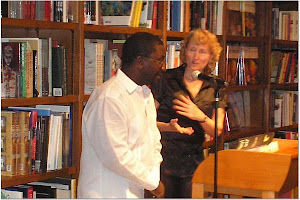
Me And Vicki at Our Reading
Bio
Preston L. Allen is the recipient of a State of Florida Individual Artist Fellowship in Literature and the Sonja H. Stone Prize in Fiction for his short story collection Churchboys and Other Sinners (Carolina Wren Press 2003). His works have appeared in numerous publications including The Seattle Review, The Crab Orchard Review, Asili, Drum Voices, and Gulfstream Magazine; and he has been anthologized in Here We Are: An Anthology of South Florida Writers, Brown Sugar: A Collection of Erotic Black Fiction, Miami Noir, and the forthcoming Las Vegas Noir. His fourth novel, All Or Nothing, chronicles the life of a small-time gambler who finally hits it big. Preston Allen teaches English and Creative Writing in Miami, Florida.